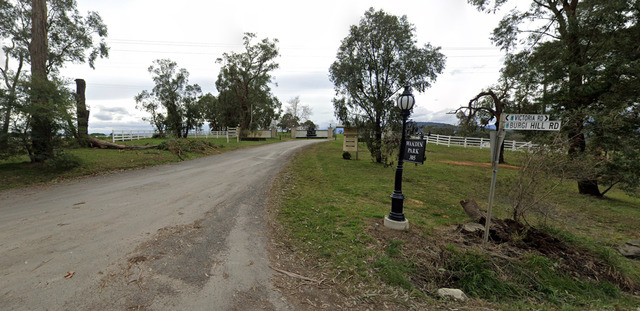By Callum Ludwig
VCAT has considered the facts of a case in a preliminary hearing for a refused planning permit application submitted to Yarra Ranges Council by Wandin Park Estate in Gruyere.
Applicant John Anker took the case to the tribunal seeking a review of Yarra Ranges Council’s decision to refuse a planning permit application for the site for building/works on a marquee and arbor structure and car parking and access works for the existing function centre.
VCAT Member Dalia Cook presided over the case and also had to consider the existing use rights of the estate and whether the planning scheme was unreasonably or unlawfully restricting it.
Council, the applicant and Ms Cook all agreed that Clause 51.02 did not provide a trigger for buildings and works but Council and the applicant disagreed over whether the clause established existing use rights as a function centre, as of the council issuing a certificate of compliance on 21 December 2021.
Council argued it did and the applicant disagreed but Ms Cook said in her decision that she took a somewhat different approach that bridges the position of the parties, finding that Clause 63.01 demonstrated and confirmed the rights and Clause 52.02-2 providing ‘use controls that supplement those in the applicable zone.’
“In this instance, the existing use right has accrued through 15 years of continuous use, as evidenced by Clause 63.11… In the current instance, I was advised by Council that the use table in this provision is the same as that in the Green Wedge Zone as it applies to the subject land,” the decision reads
“I find that the purpose of Clause 51.02-4, understood in the context of the provision as a whole, is to cover the circumstances where an existing use pertains to a use in the table of uses, to confirm that the same limitations apply as they would for the zone controls. More specifically, it triggers the considerations for a section 3 use, regardless of the underlying section that would ordinarily apply to a use to be permitted,”
“To this extent, when Clause 51.02-4 refers to ‘a use right [being] established by these provisions’, it does not seek to usurp the role of Clause 63. It should probably have been worded to ‘a use right [being] established in respect of these provisions’ to avoid confusion and to provide this clause with an applicable meaning.”
Yarra Ranges Council attempted to argue that existing use rights could be lost or extinguished by unauthorised buildings or works because they were to be constructed in a new area of the site without existing buildings and would then mean the function centre’s use would be unlawful, but this was thrown out. Ms Cook also considered if patron number limitations might be a reason to prohibit the application but ruled that the established existing use right makes it irrelevant.
Council submitted that the proposal for the sale and consumption of liquor is an alternative use to the existing use of the function centre, and would have to be ‘less detrimental to the amenity of the locality’ for approval.
Ms Cook said this was further supported in Council’s view by the fact there were only temporary liquor licences issued for specific functions over a confined period of time.
“The applicant disagreed that the sale and consumption of liquor in connection with a lawful function centre would constitute an ‘alternative use’ under this provision,” the decision reads.
“The threshold in Clause 63.08 is specifically confined to an ‘alternative use’. In my view, it should only properly be applied to a genuine alternative use, in the sense that the existing use is being replaced with another,”
“In the current circumstances, the use of the land for a function centre would persist as the primary purpose of the use. At best, it could be said that the sale and consumption of liquor is supplementary or complementary to this use, in order to support and enhance it. It is not an alternative use that would result in the cessation of the use as a function centre.”
The ‘less detrimental to amenity test’ was not invoked as a result.
Ms Cook then weighed up whether permission could or should be granted to allow for the sale and consumption of liquor as an existing use right and said thw consequences may be significant for existing use rights because normally there’s permit conditions limiting patron numbers, licensing hours or entertainment to limit effects on local amenity.
“Council submitted that ‘it is not implicit that a function centre use includes the serving of food or drinks, let alone the sale and consumption of liquor’. I am not persuaded that the use of land for a function centre necessarily encompasses the sale and consumption of liquor,” the decision reads.
“While it may be a reasonably common expectation, I find that the circumstances of this particular right accruing for the subject land do not sustain this… I find that the inherent purpose of a function centre is to provide an opportunity for people to congregate for a pre-arranged function. It may or may not include the provision of food or drink, specifically alcohol,”
“To this extent, I consider that the formalised use of the subject land for the sale and consumption of liquor would be a new additional ‘use’, albeit one that is intended to supplement the existing use of the land for a function centre.”
On previous occasions, caterers had obtained relevant liquor licenses to serve alcohol on the site, and the operator obtained limited licenses on ‘a handful of occasions’ but there was no permanent liquor license for the property.
Ms Cook approving for the hearing to be resumed for a further day by two other VCAT members in the future and also provided administrative mention to allow for either part to seek amendments to the permit application following the hearing, or to timetable the provision of any further submissions for the final hearing day.







